Historical Fiction
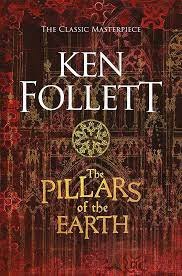
1. The Pillars of the Earth
Buy on Amazon"The Pillars of the Earth" by Ken Follett is a historical epic set in 12th-century England. The novel spans decades and intricately weaves the lives of various characters, from nobles to peasants, against the backdrop of the construction of a cathedral in the fictional town of Kingsbridge. It explores themes of power, love, and the impact of historical events on individuals. The narrative skillfully combines drama, politics, and personal struggles, offering a compelling portrayal of medieval life and societal change. The novel is praised for its rich character development and detailed historical context.
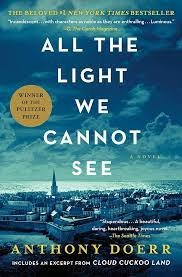
2. All the Light We Cannot See
Buy on Amazon"All the Light We Cannot See" by Anthony Doerr is a Pulitzer Prize-winning novel set during World War II. The story follows two protagonists, a blind French girl named Marie-Laure and a German orphan named Werner, whose lives become entwined as the war unfolds. The novel explores the impact of war on individuals and the resilience of the human spirit. Through beautifully crafted prose, Doerr illuminates the unseen connections that bind people across borders. The narrative unfolds in a non-linear fashion, creating a mosaic of poignant moments that highlight the enduring power of hope and humanity amid the chaos of war.
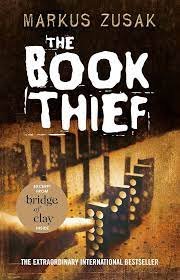
3. The Book Thief
Buy on Amazon"The Book Thief" by Markus Zusak is a novel set in Nazi Germany and narrated by Death. It follows Liesel Meminger, a young girl living with a foster family, who steals books and shares them with her neighbors and the Jewish man hiding in her basement. The novel explores the impact of words and literature in the midst of war, portraying the resilience of the human spirit. Death's unique perspective adds a haunting yet compassionate layer to the narrative. With themes of love, loss, and the enduring power of storytelling, "The Book Thief" is a moving and memorable exploration of the human experience during a dark period in history.
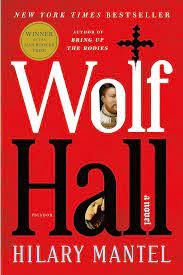
4. Wolf Hall
Buy on Amazon"Wolf Hall" by Hilary Mantel is a historical novel centered around Thomas Cromwell, a key figure in the court of King Henry VIII. Set in the 16th century, the narrative delves into political intrigue, religious upheaval, and the complexities of power. Cromwell rises from humble beginnings to become a chief advisor to the king, navigating the treacherous waters of court politics. Mantel's rich prose and meticulous historical research bring this period to life, offering a fresh perspective on familiar events. "Wolf Hall" is a compelling exploration of ambition, loyalty, and the dynamics of power during a transformative period in English history.
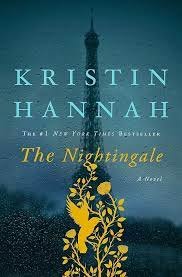
5. The Nightingale
Buy on Amazon"The Nightingale" by Kristin Hannah is a historical fiction novel set in France during World War II. It follows the lives of two sisters, Vianne and Isabelle, who take different paths in response to the German occupation. Vianne struggles to protect her family within the constraints of the collaborationist regime, while Isabelle joins the French Resistance. The novel explores themes of love, sacrifice, and the resilience of the human spirit in the face of war. Through the sisters' distinct experiences, "The Nightingale" offers a poignant and powerful portrayal of the impact of conflict on individuals and families.
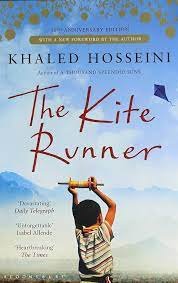
6. The Kite Runner
Buy on Amazon"The Kite Runner" by Khaled Hosseini is a compelling novel that explores the complexities of friendship, betrayal, and redemption in the context of Afghanistan's tumultuous history. The story follows Amir, the privileged son of a wealthy businessman, and Hassan, the son of their servant, as their lives become entwined by a traumatic event. Against the backdrop of Soviet invasion, the rise of the Taliban, and Afghan diaspora, the novel spans decades. Amir's journey to seek forgiveness and make amends for past sins is at the heart of this emotionally charged narrative, making "The Kite Runner" a powerful exploration of guilt, love, and the impact of personal choices on one's destiny.
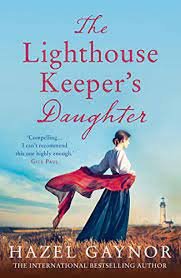
7. The Lighthouse Keeper's Daughter
Buy on Amazon"The Lighthouse Keeper's Daughter" by Hazel Gaynor is a historical fiction novel that interweaves the lives of two women across different eras. In the early 20th century, Grace Darling, the daughter of a lighthouse keeper, becomes a national heroine after a daring rescue. In the 1930s, Matilda Emmerson, a war correspondent, seeks refuge in a Cornish village, discovering Grace's story and finding parallels in their own struggles. The novel explores themes of courage, love, and the impact of fame. With a captivating blend of history and fiction, "The Lighthouse Keeper's Daughter" celebrates the strength of women and the timeless resonance of their stories.

8. The Historian
Buy on AmazonThe Historian" by Elizabeth Kostova is a literary thriller that follows a young woman's journey to uncover the mystery surrounding her father's obsession with Dracula. The novel unfolds across multiple timelines and locations, weaving together historical events, vampire lore, and academic intrigue. As the protagonist delves into her father's research, she becomes entangled in a quest to find the truth about Vlad the Impaler and the existence of vampires. Kostova's atmospheric prose and intricate storytelling create a suspenseful and immersive narrative that bridges the gap between history and legend, making "The Historian" a captivating and atmospheric exploration of the Dracula myth.
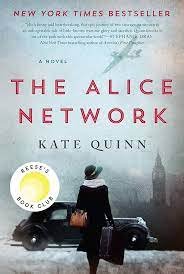
9. The Alice Network
Buy on Amazon"The Alice Network" by Kate Quinn is a historical novel that intertwines the stories of two women during World Wars I and II. In 1947, Charlie St. Clair, a pregnant American searching for her missing cousin, teams up with Eve Gardiner, a former spy with the Alice Network—a network of female spies in World War I. The narrative alternates between Eve's wartime experiences and Charlie's post-World War II search. The novel explores themes of friendship, courage, and the impact of war on individuals. Through espionage, betrayal, and resilience, "The Alice Network" paints a vivid portrait of women's roles in espionage and the lasting effects of war.
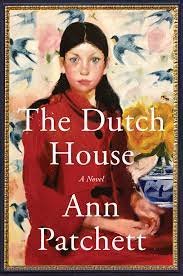
10. The Dutch House
Buy on Amazon"The Dutch House" by Ann Patchett is a family saga that revolves around the Conroy family and their unique connection to the Dutch House, an opulent mansion in Pennsylvania. Narrated by Danny, the story spans five decades, exploring themes of family, loss, and the enduring power of place. After their father's remarriage, Danny and his sister Maeve are exiled from the Dutch House, setting off a chain of events that shape their lives. The novel delves into the intricacies of sibling relationships, wealth, and the impact of the past on the present. Patchett's prose and character development make "The Dutch House" a poignant exploration of memory and forgiveness.
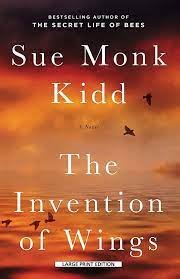
11. The Invention of Wings
Buy on Amazon"The Invention of Wings" by Sue Monk Kidd is a historical novel inspired by the life of Sarah Grimké, a 19th-century abolitionist and women's rights advocate. The narrative alternates between the perspectives of Sarah and Hetty "Handful" Grimké, a slave given to Sarah on her eleventh birthday. The novel explores their complex relationship as both women strive for freedom and independence. Set against the backdrop of the antebellum South, the story addresses themes of slavery, gender inequality, and the quest for personal agency. Kidd's rich storytelling weaves together history and fiction, creating a compelling and thought-provoking narrative in "The Invention of Wings."
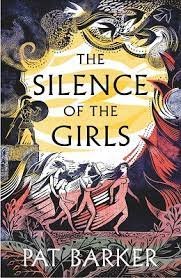
12. The Silence of the Girls
Buy on Amazon"The Silence of the Girls" by Pat Barker reimagines the classic Greek epic "The Iliad" by focusing on the perspectives of the women who were often voiceless in the original narrative. The story is told through the eyes of Briseis, a Trojan queen captured by Achilles during the Trojan War. As a slave in the Greek camp, Briseis provides a unique and powerful account of the war's brutality, exploring themes of power, agency, and resilience. Barker's novel sheds light on the untold stories of the women in ancient myths, offering a fresh and thought-provoking perspective on the impact of war on those traditionally relegated to the background.
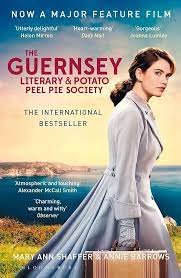
13. The Guernsey Literary and Potato Peel Pie Society
Buy on Amazon"The Guernsey Literary and Potato Peel Pie Society" by Mary Ann Shaffer and Annie Barrows is an epistolary novel set in 1946. Juliet Ashton, a London-based writer, receives a letter from a resident of Guernsey, one of the Channel Islands occupied by the Germans during World War II. The letter sparks a correspondence, and Juliet learns about the islanders' experiences during the war. She travels to Guernsey and discovers the story of a literary society formed as a cover during the occupation. The novel unfolds through letters, revealing a charming and heartwarming tale of friendship, resilience, and the love of literature in the aftermath of war.
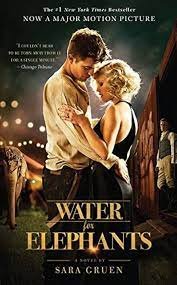
14. Water for Elephants
Buy on Amazon"Water for Elephants" by Sara Gruen is a historical novel set in the 1930s during the Great Depression. The story follows Jacob Jankowski, a young veterinary student who, after a family tragedy, finds himself working with a traveling circus. The novel explores the harsh and vibrant world of circus life, complete with colorful characters, forbidden love, and the challenges of caring for Rosie, an elephant with a mysterious past. Through Jacob's perspective as both a young man and an elderly resident in a nursing home, the narrative delves into themes of love, survival, and the enduring magic of the circus.
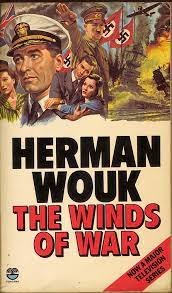
15. The Winds of War
Buy on Amazon"The Winds of War" by Herman Wouk is a historical novel set against the backdrop of World War II. The story follows the Henry family, headed by naval officer Victor "Pug" Henry, as they navigate the complex political and social landscape leading up to the war. The narrative spans continents and characters, providing a panoramic view of the global conflict. Through the eyes of the Henry family, the novel explores themes of love, duty, and the impact of historical events on individuals. Wouk's detailed historical research and compelling storytelling make "The Winds of War" a sweeping epic that captures the human drama of one of the most significant periods in history.
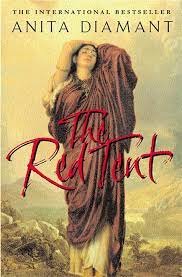
16. The Red Tent
Buy on Amazon"The Red Tent" by Anita Diamant is a historical novel that reimagines the biblical story of Dinah, the daughter of Jacob and Leah. The novel is narrated by Dinah and provides a perspective on the lives of the women in Jacob's family, focusing on their experiences and relationships. Set against the backdrop of ancient Mesopotamia, the novel explores themes of womanhood, sisterhood, and the strength of female bonds. "The Red Tent" takes its title from the tent where women traditionally gather during their menstrual periods, emphasizing the importance of women's stories and experiences in a patriarchal society.
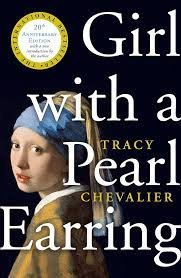
17. Girl with the Pearl Earring
Buy on Amazon"Girl with a Pearl Earring" by Tracy Chevalier is a historical novel that fictionalizes the creation of Johannes Vermeer's famous painting of the same name. The story is narrated by Griet, a young girl who becomes a maid in Vermeer's household. As Griet navigates the challenges of her new role, she becomes drawn into the world of Vermeer's art and the dynamics within the household. The novel explores themes of art, power, and the relationship between artist and subject. Chevalier's evocative prose captures the atmosphere of 17th-century Delft and provides a speculative glimpse into the inspiration behind a timeless masterpiece.

18. The Underground Railroad
Buy on Amazon"The Underground Railroad" by Colson Whitehead is a historical novel that reimagines the Underground Railroad as a literal network of subterranean tracks and tunnels, offering escaped slaves a dangerous journey to freedom. The story follows Cora, a young slave on a Georgia plantation, as she embarks on this perilous odyssey. Each stop on the railroad represents a different state of American society, from benevolence to extreme brutality. Whitehead's novel explores themes of racism, oppression, and the pursuit of freedom, creating a powerful narrative that blends historical realism with elements of magical realism to address the profound impact of systemic injustice.
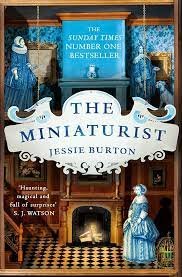
19. The Miniaturist
Buy on Amazon"The Miniaturist" by Jessie Burton is a historical novel set in 17th-century Amsterdam. The story follows Petronella "Nella" Oortman, a young bride who receives a dollhouse replica of her home from her enigmatic husband. As Nella engages a miniaturist to furnish the tiny house, the commissioned miniatures begin to mirror and predict events in her own life. The novel explores themes of power, secrets, and societal constraints, unraveling a mysterious and atmospheric tale within the confines of domesticity. Burton's narrative weaves together elements of suspense, social commentary, and historical detail, creating a compelling and evocative portrayal of life in the Dutch Golden Age.
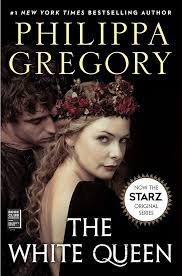
20. The White Queen
Buy on Amazon"The White Queen" by Philippa Gregory is a historical novel that is part of the "The Cousins' War" series. The story is set during the Wars of the Roses in England and follows Elizabeth Woodville, who becomes the queen consort to King Edward IV. The novel explores the political intrigues, power struggles, and conflicts between the houses of York and Lancaster. Elizabeth, known as the White Queen, navigates a tumultuous period in English history, and the narrative weaves elements of romance, political maneuvering, and historical drama. Philippa Gregory's novel provides a vivid and fictionalized account of the life of a prominent historical figure during a pivotal time in England's past.